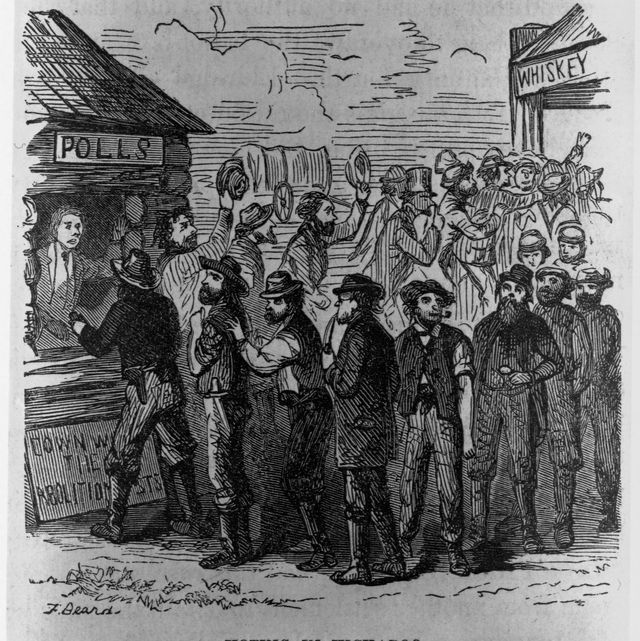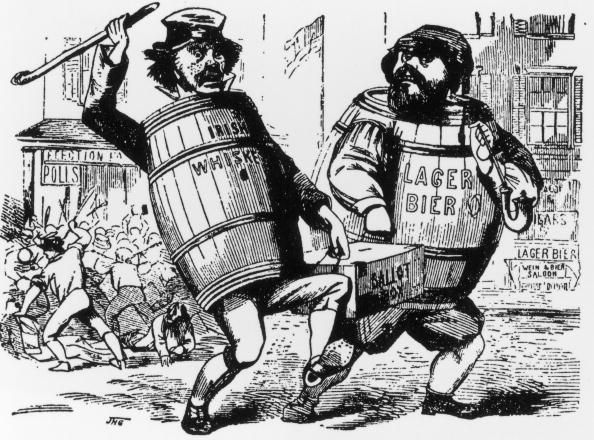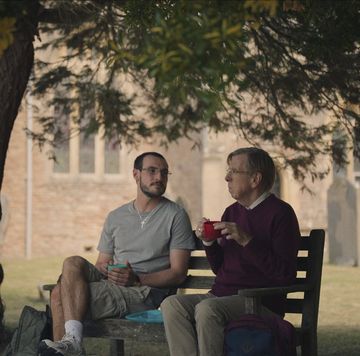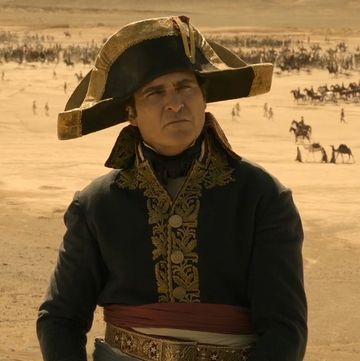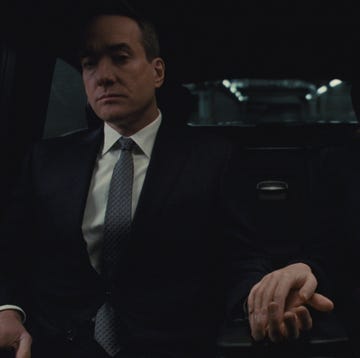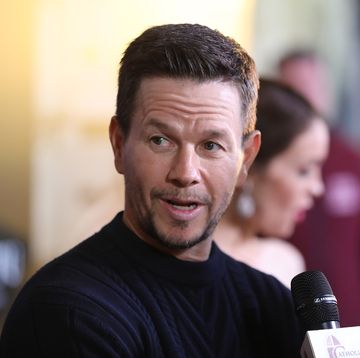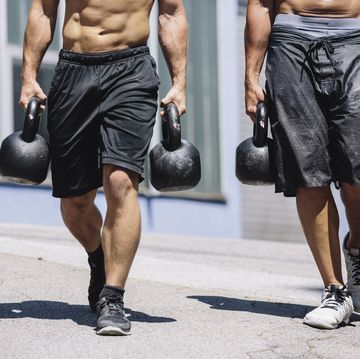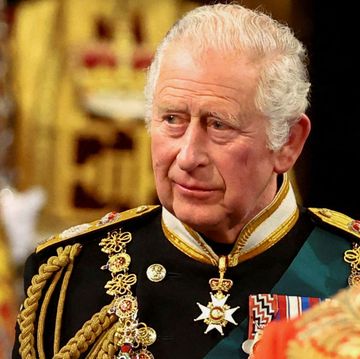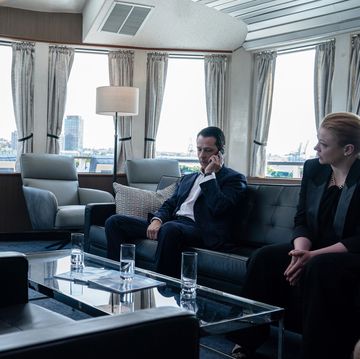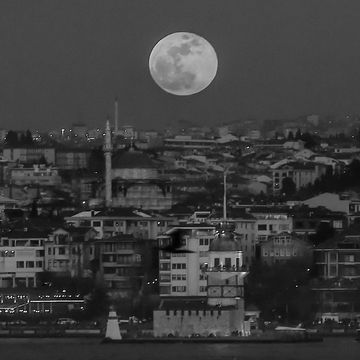I shouldn’t be dreading Election Day the way I am. Or at least not for the reasons for which I’m dreading it. I have dreaded Election Days before, but I dreaded them because I dreaded the outcome—the traditional American reason for dreading Election Days. And for the most part, the Election Days I dreaded for that reason were elections worth dreading: Nixon (twice), Reagan (twice), George W. (once, the second term; I didn’t know enough about him in 2000). And Lord knows both 2016 and 2020 filled my brain with snakes and dragons.
But as we approach this Election Day, I’m dreading it for an entirely new reason. A reason I thought we’d left behind with Tammany Hall in the North and with the Klan in the South. I’m dreading the actual act of voting, all over the country.
This week, Reuters ran a long piece of reporting about the network of election deniers and trained ratf*ckers:
As the United States enters the final stretch to November’s midterm elections, Reuters documented multiple incidents of intimidation involving an expanding army of election observers, many of them recruited by prominent Republican Party figures and activists echoing Trump's false theories about election fraud. The widespread voter fraud in the 2020 election as alleged by Trump and his supporters was never proven.
I admire the writer’s discretion here, but the reason that the alleged voter fraud was “never proven” was because it “never happened.”
Interviews with more than two dozen election officials as well as representatives of groups driven by false theories about election fraud, and an examination of poll-watching training materials, revealed an intensifying grassroots effort to recruit activists. This has heightened alarm that disturbances in this year's primary contests could foreshadow problems in November's local, state and national races.
One thing we all should’ve learned from the public hearings of the January 6 select committee is that almost nothing is spontaneous anymore. Dig deep enough, and you’ll find someone organizing these “spontaneous” events (as well as someone bankrolling them). In any case, Reuters found examples of this occasionally criminal behavior all over the country. Most of the incidents ran on the same rails.
Election officials in three other states -- North Carolina, Arizona and Nevada -- reported similar incidents. In 16 North Carolina counties alone, officials noted unusually aggressive observers during May's primary elections, according to a state election board survey. Some attempted to take photographs of sensitive voting equipment or intimidated voters at polling places, in violation of North Carolina's election laws. During early voting in Arizona's Pima County, an election observer was told to put away binoculars; another was caught looking at private voter data, and another was asked to stop making comments about “fraudulent elections,” according to a September report by the county recorder's office reviewed by Reuters[…]In Nevada's Washoe County, people with night vision goggles stood outside the registrar's building and aimed their cameras at election workers counting votes on primary night in June, two Washoe County officials told Reuters.
Night vision goggles?
Groups that question the legitimacy of the 2020 vote have helped recruit thousands of observers who support dramatic changes to how Americans vote, including doing away with voting machines and returning to hand-counted paper ballots. Officials say they are concerned observers intent on rooting out so-called voter fraud could cause unnecessary disruptions and long lines at polling places on Election Day. "It's a real concern," said Al Schmidt, a former Philadelphia city commissioner who received death threats after the 2020 election for refuting false claims of voter fraud. "If these people show up to the polls with the intention of disrupting voting from taking place, then I can't imagine a worse threat to democracy than that.”
I can, but not many. I’m buying into the pious banalities of the organizers about as far as I can throw a Dominion voting machine.
Sandy Kiesel, who heads the Election Integrity Force in Michigan, said her poll "challengers" will be trained to be "polite, respectful and to obey the law. We're not about trying to hassle poll workers," Kiesel told Reuters. "It's about transparency. If we can all see what's going on, maybe we wouldn't have these arguments whether elections are free and fair.”
Kiesel seems to be the front person for the organized ratf*ckery that is the Election Integrity Force. In August, Politico published the tapes of a Zoom meeting of the EIF in which operatives were told that, if they saw anything they thought untoward, they should call 911, which certainly would endear them to dispatchers in various small town police departments.
Sadly, this is nothing new for the modern Republican Party. The Republican National Committee was under a consent decree from 1982 through 2018 prohibiting it from “engaging in activities that suppress the vote, particularly when it comes to minority voters.” The decree was the result of naked voter intimidation in the 1981 New Jersey gubernatorial election, in which minority precincts were “patrolled” by something called the National Ballot Security Task Force, a group of armed off-duty police officers and sheriff’s deputies. These goons challenged voters and actually blocked some of them. The Democratic National Committee sued and that lawsuit resulted in the consent decree.
The 2018 court decision that lifted this consent decree opened the door to a distressful past.
In 1964, the Republican National Committee—hamstrung with an extremist presidential candidate in Barry Goldwater and facing Lyndon Johnson, who was running as the political heir to a popular president whose murder the country was still collectively grieving—devised something called Operation Eagle Eye. The program called for an organized effort to challenge Hispanic voters all over Goldwater’s home state of Arizona. One of the volunteers was an ambitious young lawyer named William Rehnquist, who later would be the chief justice of the United States Supreme Court for nearly 20 years.
Chicanery—even violent chicanery—at polling places has a long history in American politics. For a long time, it was often fueled by alcohol provided to citizens on their way in to vote. In fact, as author Daniel Okrent reports in his fine history of Prohibition, it goes back to elections held even before the United States was the United States.
“When twenty-four-year-old George Washington first ran for a seat in the Virginia House of Burgesses, he attributed his defeat to his failure to provide enough alcohol for the voters. When he tried again two years later, Washington floated into office partly on the 144 gallons of rum, punch, hard cider and beer his election agent handed out—roughly half a gallon for every vote he received.”
In 1777, James Madison, future president and principal author of the Constitution, lost an election because he refused to ply voters with booze. According to historian Robert Dinkin, this was called “swilling the planters with gumbo.” In New York, bars doubled as polling places, which must have been delightful. The famous Hatfield-McCoy feud in Kentucky was exacerbated by the murder of a Hatfield by a McCoy in a drunken Election Day brawl.
But what is different from those rough and rowdy days is the cold calculation behind efforts like the ones that Reuters describes. Offenses against the franchise became much less funny once the dearly departed Voting Rights Act and voter suppression broke down along racial lines. The relentless attack on minority voting rights has animated the entire legal career of the present chief justice, John Roberts, and he and the carefully engineered conservative majority on the Supreme Court finally eviscerated it in 2010 with Shelby County v. Holder. A half-century later, Operation Eagle Eye at last found that it had a friend in court. And Justice Ruth Bader Ginsberg, dissenting in Shelby County, delivered an elegy for the VRA that also opened up the door to a new and uncertain time for us all:
Beyond question, the VRA is no ordinary legislation. It is extraordinary because Congress embarked on a mission long delayed and of extraordinary importance: to realize the purpose and promise of the Fifteenth Amendment. For a half century, a concerted effort has been made to end racial discrimination in voting. Thanks to the Voting Rights Act, progress once the subject of a dream has been achieved and continues to be made.
It’s a message from another world.

Charles P Pierce is the author of four books, most recently Idiot America, and has been a working journalist since 1976. He lives near Boston and has three children.
